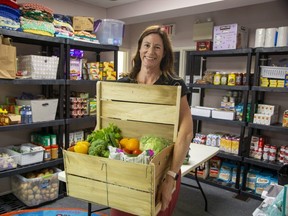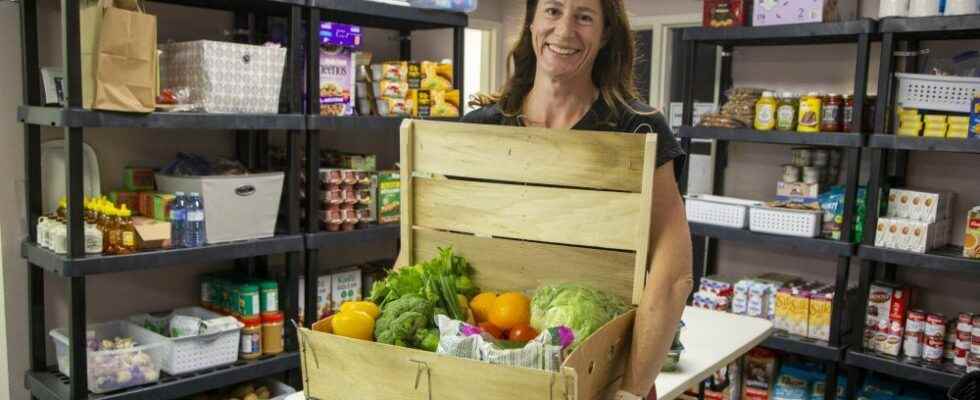The London Community Foundation is granting more than $1 million to five organizations working to tackle the city’s most pressing challenges with homelessness, food security and more.

A food program offering traditional Indigenous options from local farmers and hunters.
Teaching home construction skills while building tiny homes.
Supportive, affordable apartment units with round-the-clock staff.
The London Community Foundation is granting more than $1 million to five organizations working to tackle the city’s most pressing challenges with homelessness, food security and more.
This year’s community vitality grants will flow to agencies working with those in need in London and at Chippewas of the Thames First Nation, the foundation and recipients announced at a virtual press conference Thursday morning.
The Southwest Ontario Aboriginal Health Access Center described being “over the moon” about more than $135,000 it will receive during the next year.
It’ll help fund a year-long pilot project called the Minomode-zewin nunge-gehwin or “healthy ways of eating” program to connect urban Indigenous families with traditional foods.
“We saw a dramatic increase in clients reporting food insecurity,” said Jocelyn Zurbrigg of the health centre. “We are looking at using food as a means of healing and reconciliation, and also reconnection to culture.”
The project will include data-gathering through storytelling and connection through workshops on preparing, preserving and sharing food.
The largest grant in total dollars is earmarked for a supportive housing project through London Cares, with $350,000 during the next three years
Anne Armstrong, at the helm of London Cares, said the agency is working with other social agencies and hoping to sign deals for roughly 25 apartments across two private market housing buildings. One will need a retrofit, the other already has housing units available.
“They’re both willing to work with us on this program.”
The supportive housing would include two staff members on site 24 hours a day, and look to bring in health-care agencies and other organizations to offer “wrap-around support” to ensure those who are formerly homeless can stay housed.
“We know that the longer people stay on the street, the more trauma they experience, the more their health — both physical, mental and emotional — declines. The longer they’re on the streets and are housing-deprived, the most support they’re going to need to be stable in housing,” Armstrong said.
Other 2022 community vitality grant recipients:
CMHA Thames Valley Addiction and Mental Health Services: $138,000 during one year
The grant will fund a mental health outreach program that pairs a health-care worker with police to provide “skilled and compassionate” care to those with mental health or addiction challenges. It’s called the COAST (Community Outreach and Support Team) model.
Glen Cairn Community Resource Centre: $118,984 during three years
Its Food for All project, which supplies healthy, nutritious, culturally appropriate and sustainably produced food to those in need, is receiving the funding.
Pathways Employment Help Centre: $342,000 during two years
The grant is funding the Building New Futures Together project to teach hands-on residential construction skills on Chippewas of the Thames First Nation by building two 400-square-foot (36-square-metre) “micro homes” that can later be used for housing. Twenty members of the First Nation will begin the training program on Aug. 29.
